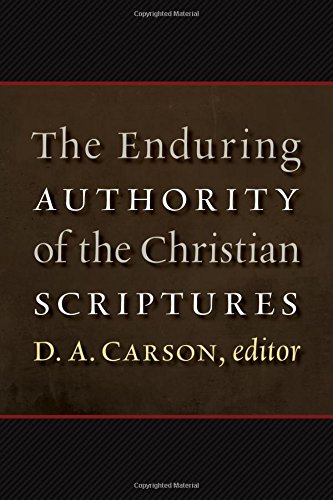A Brief Book Summary from Books At a Glance
Editor’s Note: Today we continue our series of “bonus” summaries covering all thirty-six chapters of the monumental volume, The Enduring Authority of the Christian Scriptures (D.A. Carson, ed.).
Chapter 15: “Why a Book? Why This Book? Why the Particular Order within this Book? Some Theological Reflections on Canon”
by Graham A. Cole
(Summarized by Dallas Vandiver)
The canon is “an authoritative body of sacred literature,” which owes its existence to and finds its purpose in a God who speaks. The Creator “is rendered in the canon” by his divine speech-acts. The speech-acts serve to elucidate the identity (i.e. the Name) of the Creator in his historical interactions with his image-bearing creatures and to direct those creatures to walk in his ways. Because the image-bearers alienated themselves from their Holy God through sin, God provided a gospel message in the “holy Scriptures” (2 Tim 3:15), in order that sinners might be redeemed through their trust in that gospel. Trust then leads to obedience, entailing that God saves sinners so that they might imitate him by holy living.
But, Cole asks, “How are God’s people to walk in his ways if they do not know what they are? God needs to make them known.” Thus, God has revealed his ways through his breathed-out (theopneustos) word, by which he authoritatively instructs his people. In this light, “canon is a corollary of. . .
[To continue reading this summary, please see below....]The remainder of this article is premium content. Become a member to continue reading.
Already have an account? Sign In
